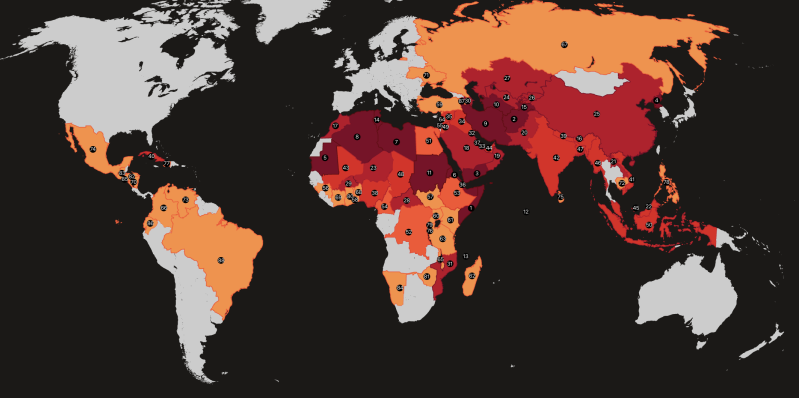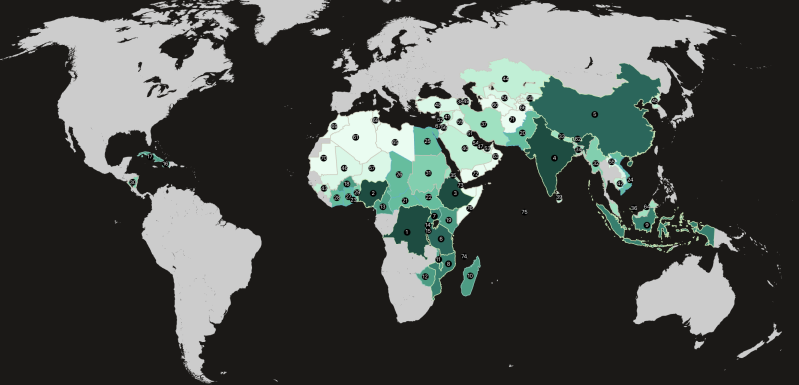
A new global assessment has found that an estimated 100 million Christians live without access to a Bible, revealing both legal restrictions and severe shortages across dozens of countries.
The Bible Access List, released Thursday by the Bible Access Initiative, combines data and expert analysis from 88 countries to identify where Scripture is most difficult to obtain. The report ranks Somalia, Afghanistan, Yemen, North Korea, and Mauritania as the five countries with the highest restrictions, while the Democratic Republic of Congo, Nigeria, Ethiopia, India, and China top the list for the greatest shortages among Christians.
“While there are many misconceptions about Bible access worldwide, the Bible Access List highlights the complexities and nuances of the issue,” said Ken Bitgood, founder and CEO of the Digital Bible Society, one of the initiative’s founding partners. “Unfettered access to the Bible is not a universal standard.”
The Bible Restrictions List measures barriers such as government bans, extremist activity, and socioeconomic factors that block Bible distribution. The Bible Shortage List estimates the number of Christians who want a Bible but have not been able to obtain one.

“A modern famine persists, not due to apathy, but because of barriers that prevent people from accessing the Bible,” said Wybo Nicolai, co-creator of the report. “Many have never seen a Bible in their language, the format they prefer, or at a price they can afford.”
The methodology combines quantitative data, survey research, and expert validation to assess how persecution, poverty, political instability, and conflict displacement limit access to Scripture. The findings emphasize that solutions must be tailored to each country and community.
“One size doesn’t fit all when it comes to solving the issues of Bible access globally,” said Jaap van Bezooijen, who oversaw the research. “Digital tools are part of the solution, but for many—especially those who are poor, offline, or living under surveillance—printed and audio Bibles remain essential.”
The Bible Access Initiative was founded by Open Doors International and the Digital Bible Society to provide reliable data to churches and mission organizations. The 2025 steering partners include the Digital Bible Society, Frontlines International, and Bible League International, with contributions from Biblica, Bible League Canada, OneHope, and others.
The full report, with detailed country profiles and maps, is available at bibleaccesslist.org.






